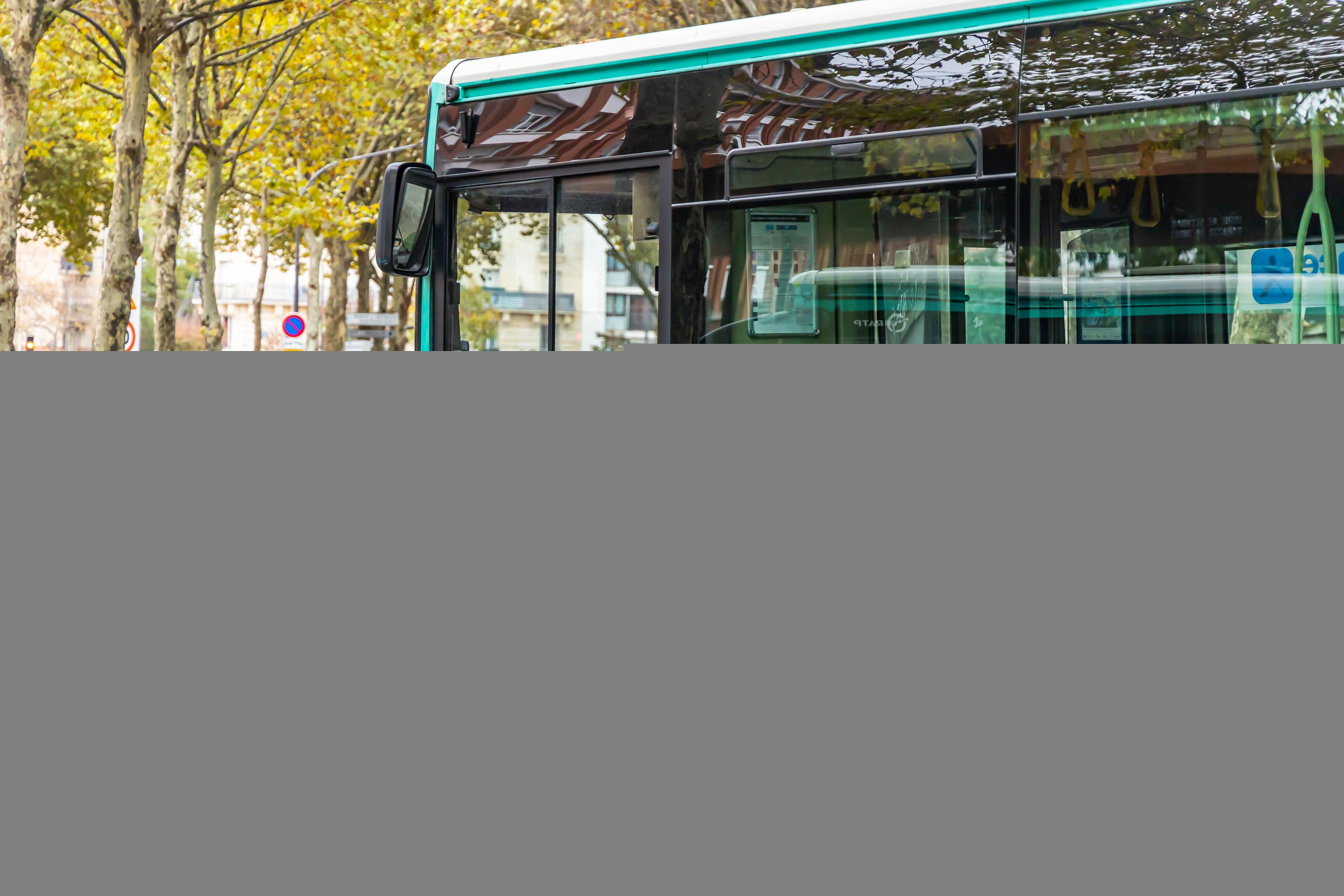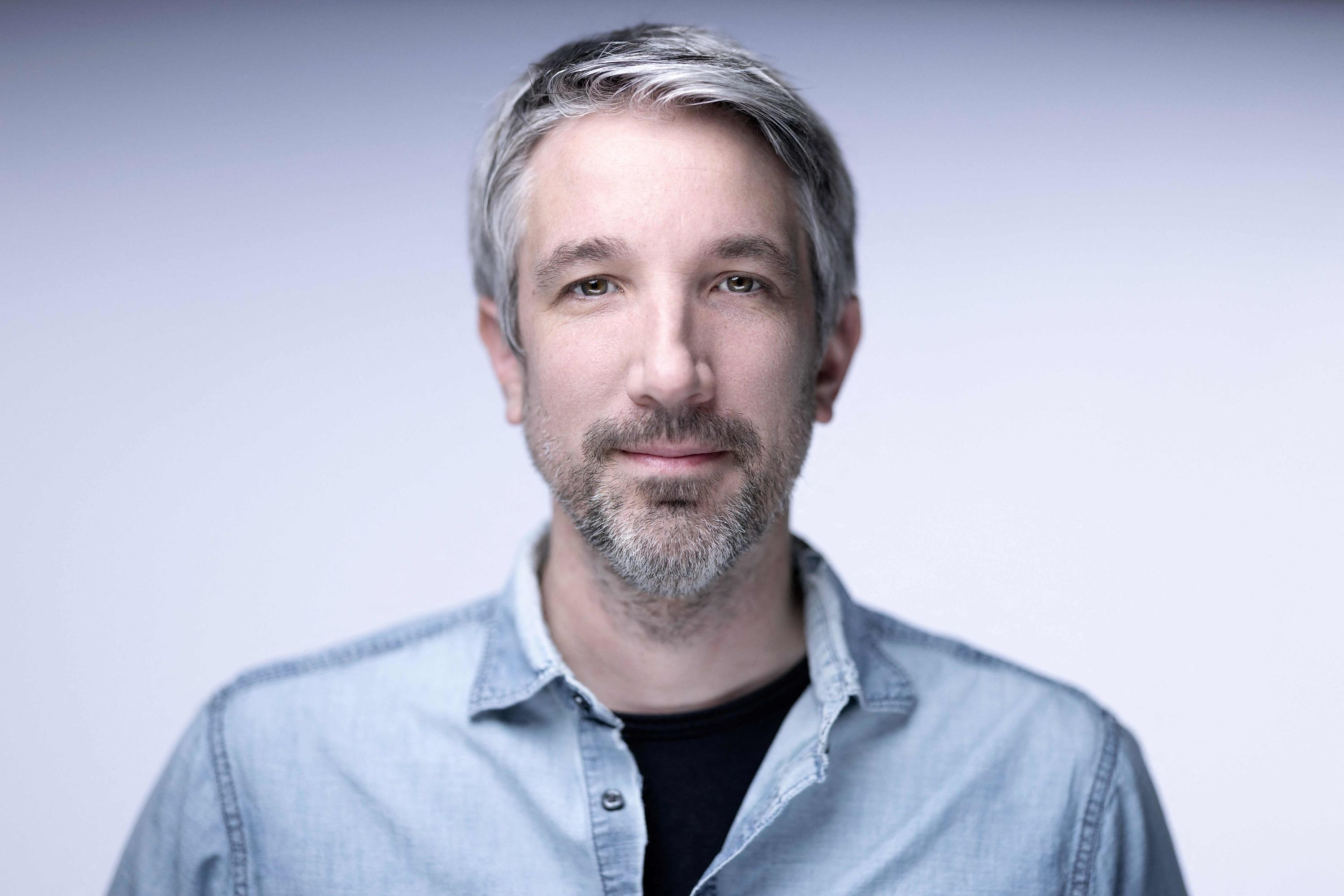It's not easy to get an appointment with Ina Brandes. The minister is currently traveling a lot to get to know the cultural landscape in NRW and to get an idea of the challenges that the world in crisis mode has for the arts.
WORLD: The Covid pandemic is not over yet, we are already in the middle of an energy crisis. What impact does this have on cultural institutions?
Ina Brandes: During the Corona period, we supported cultural workers and institutions as best we could with large aid packages, just think of the scholarship program for freelance artists and the culture strengthening fund. This has saved many institutions, including private ones, from going out of business. As a state, we are also currently willing to help if we find that the federal government's aid, such as the energy price brake, is not sufficient. At the moment we are basically dealing with two crises at the same time: the consequences of the pandemic are still clearly noticeable, and then there is Putin's war against Ukraine and the resulting increase in energy prices. A consequence of this situation is that audiences are not coming in as large numbers and subscription sales are also declining.
WORLD: How do you explain that?
Brandes: People plan more quickly because they learned during the pandemic that events had to be canceled or postponed. Now, with high inflation, many people think twice about what they spend their money on.
WORLD: Couldn't the new viewer behavior also have something to do with the programs of the institutions that do not meet the needs of people in times of crisis? One often gets the impression that theaters and museums are simply running through their pre-Corona programs.
Brandes: That's certainly true in places, but not across the board. I experience that many institutions, for example the concert halls, put together a varied program with great commitment. They invite internationally known stars, increasingly offer a classical repertoire and sometimes lighter pieces.
WORLD: Aren't you afraid that this will lead to a loss of quality?
Fires: Not at all. What speaks against an excellently performed drama by Shakespeare or music by Mozart? Under no circumstances should the facilities lose sight of the contact with the public.
WORLD: Critics claim that the institutions had already disconnected from the audience before the pandemic. Topics such as colonialism, cancel culture, climate change, gender issues are actively propagated, it is only about instruction. Don't art and aesthetics fall by the wayside?
Brandes: I hear that argument a lot. But we mustn't forget: the freedom of art is an essential basic right, enshrined in our constitution. However, this does not release the cultural institutions from the task of making an offer that is accessible to a wide audience. We have to get people excited about culture again, win them back – especially children and young people. After all, because of Corona, they haven't seen a theatre, concert hall or museum from the inside for more than two years. If the young generation is lost to us, at some point we will no longer have an audience.
WORLD: Where do you draw the boundaries of artistic freedom?
Brandes: Definitely where human dignity is violated.
WORLD: You are currently the chair of the Conference of Ministers of Culture and are therefore also busy with the anti-Semitic works of art that were on display at Documenta 15 in Kassel. These works were only taken down after lengthy discussions. Has the politicians not fulfilled their responsibility?
Brandes: From my point of view, the representations that were discussed at Documenta 15 are clearly anti-Semitic. The challenge for politics is that there has only rarely been a systematic discussion of the problem of anti-Semitism in the cultural scene.
WORLD: Artists who support the anti-Semitic movement BDS (Boycott, Divestment, Sanctions) were also active in NRW - at the Ruhrtriennale four years ago. No conclusions were drawn here. The director Stefanie Carp was allowed to stay.
Brandes: Since then, the state parliament of North Rhine-Westphalia and the Bundestag have clearly spoken out in favor of opposing the BDS movement. We will stick to that. But in recent years, other positions that are racist, discriminatory or anti-Semitic have also gathered under the guise of cultural freedom. It is important to recognize this and to say: "Stop it."
WORLD: That sounds like resignation.
Fires: Not at all. It will be crucial to develop an attitude towards this. The State of Hesse will now review the course of Documenta 15. The other federal states should also learn lessons from this. I believe that the crisis has made us more attentive.
WORLD: How do you want to check whether employees or artists in NRW institutions are BDS supporters?
Brandes: First of all, it is the task of the cultural institutions themselves to develop the necessary sensitivity for the topic. You have to learn to recognize the problem situation.
WORLD: Will there be tutoring on anti-Semitism?
Brandes: The institutions are quite sensitive to the issue of anti-Semitism. In addition, we as a state will make offers and set up a contact point for the cultural landscape of North Rhine-Westphalia, to which everyone can turn with their questions. This network is about more than anti-Semitism. Overall, the challenges in relation to socio-political issues have increased. Questions of diversity, sustainability, discrimination in the workplace and dealing with rising energy costs must be addressed and the facilities must be supported.
WORLD: The position is financed from the cultural budget. As announced, will this increase by 50 percent to around 460 million euros in this legislative period?
Brandes: That is still our clear goal. Cultural policy remains a political focus of the state government. Due to the crisis, we may not be able to implement the increase in such steep steps as was the case in the previous legislative period. All departments – not just culture – are equally affected.
WORLD: If that doesn't happen, where do you focus?
Brandes: The current developments that we talked about earlier show how important it is to remain capable of discourse. Above all, we have to support children and young people, show them how to take a close look and listen, and how to exchange arguments. The arts can make a contribution to this. We will create further offers for children and young people.

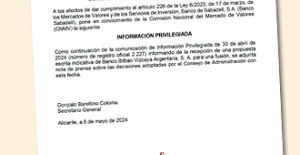 Sabadell rejects the merger with BBVA and will fight to remain alone
Sabadell rejects the merger with BBVA and will fight to remain alone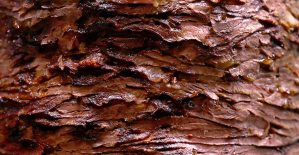 In Germany, the far left wants to cap the price of “doner kebabs”
In Germany, the far left wants to cap the price of “doner kebabs” Israel-Hamas war: Gaza between hope of truce and fear of Israeli offensive in the South
Israel-Hamas war: Gaza between hope of truce and fear of Israeli offensive in the South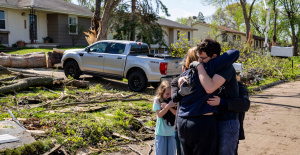 “Mom, Dad, please don’t die”: in the United States, a nine-year-old child saves the lives of his parents injured in a tornado
“Mom, Dad, please don’t die”: in the United States, a nine-year-old child saves the lives of his parents injured in a tornado A baby whose mother smoked during pregnancy will age more quickly
A baby whose mother smoked during pregnancy will age more quickly The euro zone economy grows in April at its best pace in almost a year but inflationary pressure increases
The euro zone economy grows in April at its best pace in almost a year but inflationary pressure increases Children born thanks to PMA do not have more cancers than others
Children born thanks to PMA do not have more cancers than others Breast cancer: less than one in two French women follow screening recommendations
Breast cancer: less than one in two French women follow screening recommendations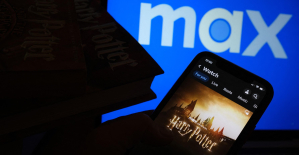 “House of the Dragon”, “Succession”… Max, the new streaming platform from HBO and Discovery, launched in France on June 11
“House of the Dragon”, “Succession”… Max, the new streaming platform from HBO and Discovery, launched in France on June 11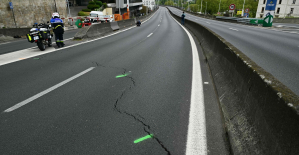 The A13 motorway will finally reopen this Friday, in one direction only
The A13 motorway will finally reopen this Friday, in one direction only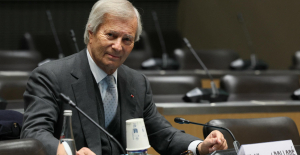 TNT commission of inquiry: tensions between LFI deputies and Macronists before the vote on the report
TNT commission of inquiry: tensions between LFI deputies and Macronists before the vote on the report Apple unveils a new, more efficient iPad range
Apple unveils a new, more efficient iPad range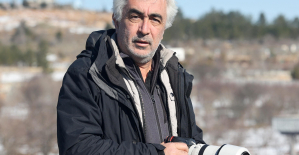 The Gaza War invites itself to the 2024 Pulitzer Prizes
The Gaza War invites itself to the 2024 Pulitzer Prizes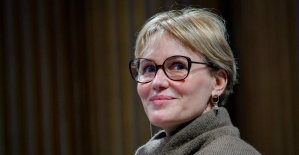 Judith Godrèche presents a short film on sexual violence in Cannes
Judith Godrèche presents a short film on sexual violence in Cannes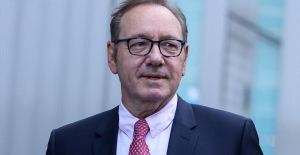 Kevin Spacey: new trial in sight in London for the American actor, for sexual assault
Kevin Spacey: new trial in sight in London for the American actor, for sexual assault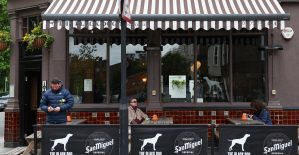 Taylor Swift fans make London pub Black Dog their new place of pilgrimage
Taylor Swift fans make London pub Black Dog their new place of pilgrimage Omoda 7, another Chinese car that could be manufactured in Spain
Omoda 7, another Chinese car that could be manufactured in Spain BYD chooses CA Auto Bank as financial partner in Spain
BYD chooses CA Auto Bank as financial partner in Spain Tesla and Baidu sign key agreement to boost development of autonomous driving
Tesla and Baidu sign key agreement to boost development of autonomous driving Skoda Kodiaq 2024: a 'beast' plug-in hybrid SUV
Skoda Kodiaq 2024: a 'beast' plug-in hybrid SUV The home mortgage firm rises 3.8% in February and the average interest moderates to 3.33%
The home mortgage firm rises 3.8% in February and the average interest moderates to 3.33% This is how housing prices have changed in Spain in the last decade
This is how housing prices have changed in Spain in the last decade The home mortgage firm drops 10% in January and interest soars to 3.46%
The home mortgage firm drops 10% in January and interest soars to 3.46% The jewel of the Rocío de Nagüeles urbanization: a dream villa in Marbella
The jewel of the Rocío de Nagüeles urbanization: a dream villa in Marbella Institutions: senators want to restore the accumulation of mandates and put an end to the automatic presence of ex-presidents on the Constitutional Council
Institutions: senators want to restore the accumulation of mandates and put an end to the automatic presence of ex-presidents on the Constitutional Council Europeans: David Lisnard expresses his “essential and vital” support for François-Xavier Bellamy
Europeans: David Lisnard expresses his “essential and vital” support for François-Xavier Bellamy Facing Jordan Bardella, the popularity match turns to Gabriel Attal’s advantage
Facing Jordan Bardella, the popularity match turns to Gabriel Attal’s advantage Europeans: a senior official on the National Rally list
Europeans: a senior official on the National Rally list These French cities that will boycott the World Cup in Qatar
These French cities that will boycott the World Cup in Qatar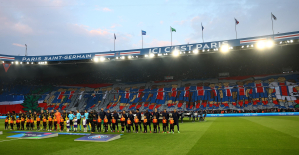 PSG-Dortmund: a gigantic tifo on three stands to welcome the players
PSG-Dortmund: a gigantic tifo on three stands to welcome the players PSG-Dortmund: in video, Donnarumma’s decisive save which saves the Parisians
PSG-Dortmund: in video, Donnarumma’s decisive save which saves the Parisians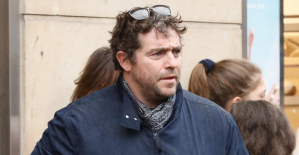 Pro D2: Biarritz goes before the regulatory authority and reveals partners
Pro D2: Biarritz goes before the regulatory authority and reveals partners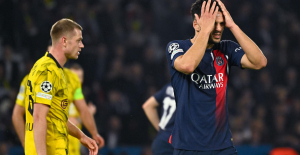 Champions League: without madness then cursed, PSG lets its dreams of the final fly away
Champions League: without madness then cursed, PSG lets its dreams of the final fly away





